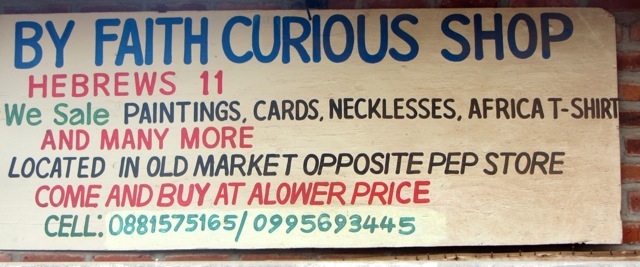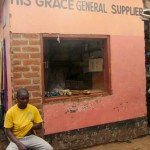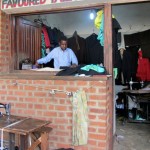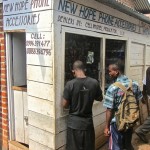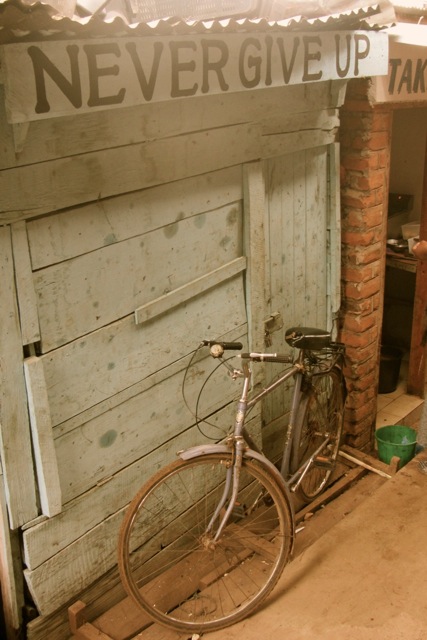“Christianity in Africa is a river one mile wide and one inch deep.” So goes the popular saying. To put it another way: while half of Africa is professedly Christian, the quality of faith of most of those four hundred million Christians is rather thin. Some folks point at how village Christianity in Africa is often mixed up with witchcraft or diluted by traditional religious practices. Others point incredulously at the widespread workplace corruption in majority Christian countries like Malawi or Zambia, or the endless cycles of religious violence in Nigeria or the Central African Republic. Proof that Christianity in Africa is a river one mile wide and one inch deep.
This saying is not true. Or, at least, it’s highly misleading. Sure, there’s much nominal Christianity in Malawi, as in the rest of Christian Africa. How could there not be when the church has grown tenfold in the past half century? And, yes, one doesn’t have to look hard around this continent to find Kalashnikov-toting Christians or pastors hiding a multitude of sins behind their clerical robes. But superficial Christian commitment isn’t a problem unique to Africa, as PCC congregations have painfully realized of late as western Christendom collapses around us. More to the point, I’ve noticed on several occasions that visitors to Malawi sometimes dismiss the Christianity they encounter here as shallow without really taking time to understand it. I recall one Canadian visitor, who, after noticing the Bible verses, Christian words, or divine names plastered on so many shop signs and storefronts, t-shirts and truck hoods, joked with me about the “bumper sticker” Christianity he had witnessed in his few weeks in Malawi. “Bumper sticker Christianity”—another way of saying that the river of African Christianity, however wide it has spread, flows shallow.
Malawian Christians (like many in sub-Saharan Africa) are fond of attaching Christian words onto their storefronts, restaurants, houses, vehicles—even children. Our kids’ school friends include “Shield of Faith”, “Trinity”, “Goodhope”, and “Lindirani” [‘we are waiting’ (for the Lord)]. Annika was almost run off the road last year by an out-of-control bus with God is in control written ironically on the bumper. We laugh at store signs we see out in villages like the God Help You Barbershop or the Praise Jesus Shoeshine. Take a look below at some scenes of our local market (by the way, ‘Chisomo’ below means God’s grace in Chichewa):
Canadian Presbyterians shy away from professing our theology on our car bumpers, so for us the scenes above certainly look like evidence of a superficial if not outright superstitious Christianity. But what does all this mean? Do Malawians think that sticking a Christian word onto a store, home or child wins favor with God? Is a His Grace sign a talisman to keep the cash register ringing? Some surely do, but there are at least two closely-connected things going on here, which, taken together evidence not shallow but deep Christian commitment—indeed, a quality of faith that Christians in the West should take note of.
On one hand, the gap between Sunday morning worship and the rest of the week (which we Canadian Christians typically take as normal) isn’t for many African Christians. For them, faith is a natural and prominent part of everyday life—not something tucked away as a private matter or sealed off for one day of the week. Religion is, as a great Nigerian theologian (Ogbu Kalu) wrote, “a survival strategy”. As such, Africans’ faith gets declaimed in public on bumper stickers or business signs; it is proclaimed in public in times of want or plenty, to a degree that visitors from the West find overwhelming…even disconcerting. At the international school in Zomba that our kids attend, the Malawian teaching staff insist on thanking God for the mid-morning snack: a practice that Malawian Christian and Muslim parents are happily with, but what makes the Dutch, North American, or German parents squirm a bit!
On the other hand, unlike most Christians in the West, many African Christians have a lively sense of the invisible, spiritual world as a real dimension of reality. This world is home to the principalities and powers spoken of by the Bible. Many of them possess great power to harm and destroy life. If you don’t declare yourself for God, for all intents and purposes you declare yourself for these other powers. So you name your child, your shop, your car for the Lord to commit yourself to him and his ways. It’s like circumcision for the Jews or baptism for the Christians: a mark of allegiance to the true God and his covenant in Jesus Christ.
While Canadians rightly want to recognize and respect the views of others in our post-Christian, multi-religious nation, I wonder if we Christians could learn anything from our sisters and brothers on the African continent about how to recognize—even celebrate—God’s presence in our everyday lives and everyday world? As Bob Dylan sang: “You gotta serve somebody/ It might be the Devil, or it might be the Lord/ but you gotta serve somebody”. If we don’t let Jesus reign over the other six days of the week, if we don’t let Christ fill up all our time and space, some other gods will.


